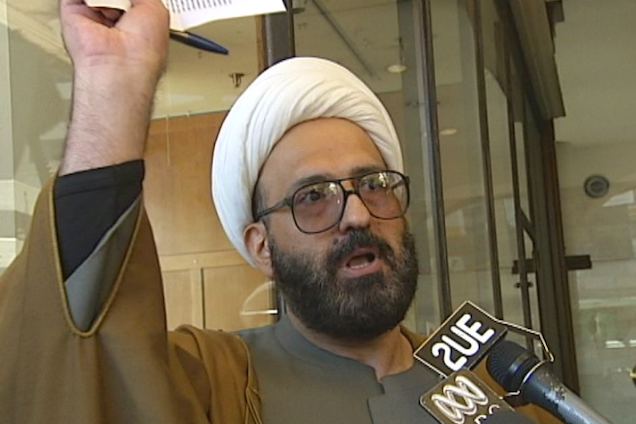December 26-2014

An Iranian living in Australia says the gunman who held Sydney in siege for a day last week lived a privileged life in Tehran, where he ran several businesses and was well connected to senior government figures.
The Iranian immigrant talked to the Australian media about Man Haron Monis but asked that his name not be used. There was no way to check out the accuracy of what the immigrant reported.
The immigrant said of Monis, “He was a powerful man, a very important man in Iran. Anything he wanted, he could have.”
He said Monis came from a religious family with roots in Borujerd, in the northwest of Iran. He took religious studies and became a minor cleric, before attending university to study political science. The news reports did not name the university, but quoted the immigrant as saying it was “the one all the leaders graduate from.”
The contacts Monis made there proved useful, as did his marriage to a woman whose father was the right-hand man to a prominent figure in Iran’s Islamic Revolution, whom he did not name. “I would go to Man’s house and see photos of him with famous people—with military people, with generals,” said his friend, who met Monis in 1992.
Monis and his wife lived in a wealthy neighborhood in northwest Tehran, where he was surrounded by regime officials, his friend said. He ran several companies, including a travel agency. But his main business was a trading company that took advantage of Iran’s black market. “Man would use his connections in the government to get goods, like TVs, at cheap prices. He would use another man to then sell those things and he would take a little bit of the money.”
Monis began writing poetry as a teenager and his work was published in newspapers and magazines. “He was well known in the book community,” his friend said.
In 1995, using his birth name of Mohammad Hassan Manteghi, he published a collection of poems under the title “Daroon va Boroon” (Inside and Outside), in which he boasts of great skills that others cannot fathom. “Everybody became my friend but couldn’t learn my secret,” he wrote.
“In Iran, Man was one of the people whom everybody wants to be around, because he had connections and he was successful,” his friend said. “But he stayed away from people – he was very private. He would never give away anything of himself.”
In 1996, Monis left his wife and two daughters in Iran and fled to Australia, where he was granted political asylum. He told Australian officials he had worked for the Iranian Ministry of Intelligence and Security, where he witnessed torture and was privy to the government’s terrorist operations. “He never mentioned this intelligence work to me, but I think it is believable,” his friend said.
A few years later, his friend also came to Australia and the two men resumed contact. But Monis had become even more secretive. “He didn’t want to talk on the phone, because he thought it was tapped. When he was driving, he thought that police were behind him.”
Monis never told his friend about his Fijian wife, Noleen Pal, whom he met and married in Australia, nor their two children, who were born in 2004 and 2008. “She was the secret wife,” his friend said. “I also never knew that he was working as a spiritual healer.”
In the end, the friend said, Monis became a “ghost.” Late last year, after Monis was charged as an accessory to the murder of Pal, his friend got a call from a lawyer, asking if he would cover the bail money. “The maximum I could pay was $10,000, which they accepted.”
The last time the two men spoke was three months ago. “When I heard about the siege, I thought, ‘What idiot could do this?’ Then I saw it was him. It was incredible. This person who did this, it wasn’t the person I knew.”